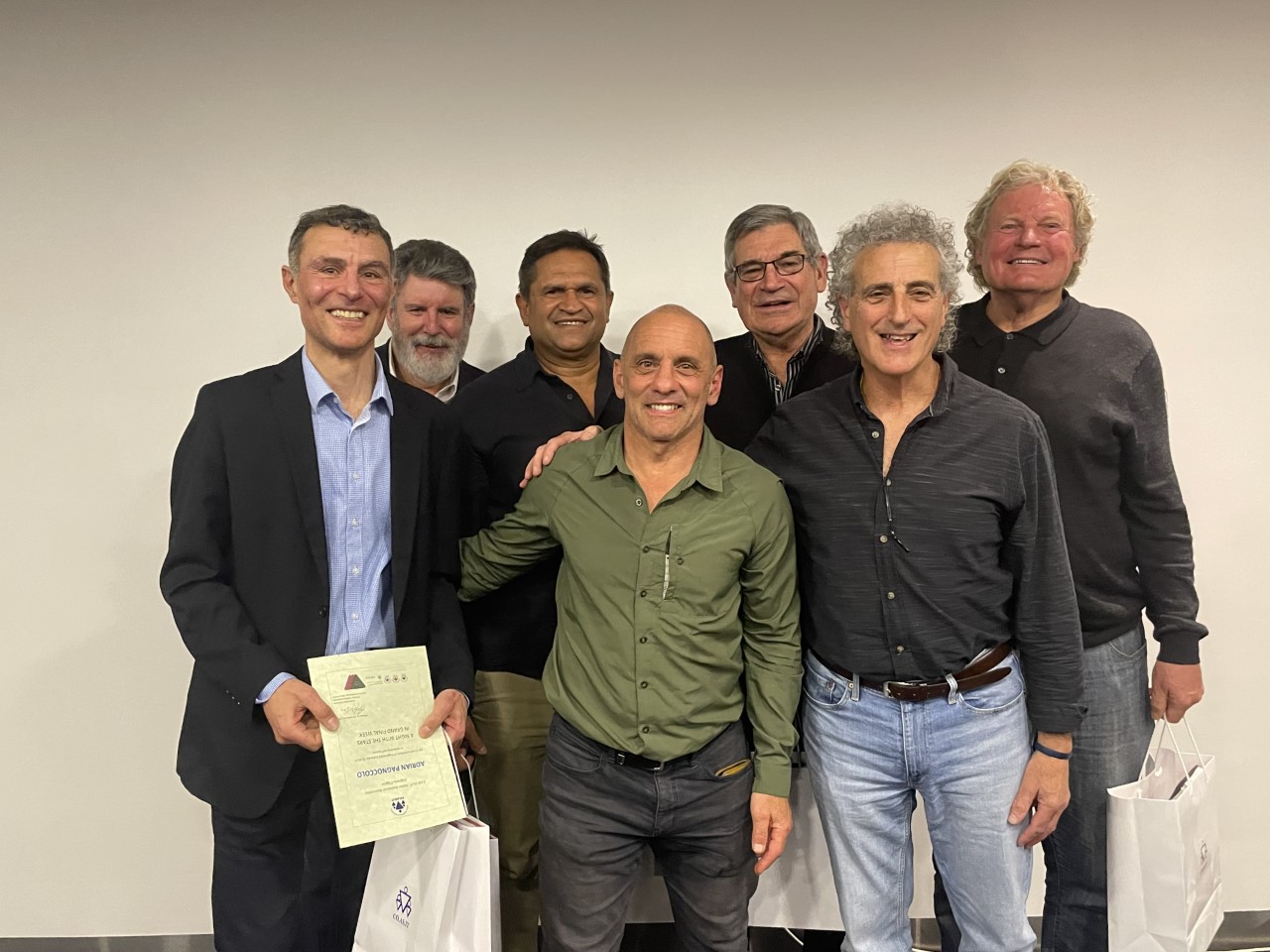We’re used to seeing them on screen, admiring their incredible feats with bated breath. We cheer and suffer alongside them during those crucial eighty minutes of play.
However it’s not often that we hear the stories behind the famous names ― these deified figures that exude an aura of absolute strength and power from the field.
Their personal histories don’t often cross our minds: where these legends came from and what led them to become who they are, whether they’ve faced challenges or not. What wisdom did their parents impart and, being Italian migrants, which cultural traditions are they most proud of?
Answering these questions was the main focus of 'A Night with the Stars', an event held on September 20 at the Co.As.It. headquarters in Melbourne.
In collaboration with Co.As.It., Adrian Pagnoccolo and sports journalist Tony De Bolfo called on a handful of Italo-Australian footy stars to share their experiences with the many people who attended the event.
Renato Serafini, Vin Catoggio, Tony Liberatore, Nicky Winmar and Ross Henshaw shared their anecdotes with the audience, encouraging them to reflect on the importance of inclusion within a community, be it sporting or local, as well as the sacrifices hidden behind their years of hard work.
"I have participated in other events relating to the Italian community that have impacted me deeply, but I always felt that one important area was lacking: sport," Pagnoccolo revealed.
"Then I started to think about how there are several players in the AFL of Italian origin, so I started to wonder how much this has affected their lives, for better or worse.
“I wanted to organise an event that celebrated the players’ achievements and could be an inspiration to others, encouraging them to not allow prejudice or discrimination to stop them from achieving their dreams."
Pagnoccolo comes from a family that has always loved sport and, in particular, has always supported Carlton. His father Carmelo, originally from Vizzini, in Sicily, and his cousin Charlie, both played in the VFL.
Helping Adrian bring this event to life was sports expert, journalist and writer, Tony De Bolfo, who moderated the meeting and introduced the former athletes to the eager audience.
After the opening greetings, Renato Serafini, a former player for Fitzroy and Carlton in the 1970s, was given the floor. Born in 1953 to parents who migrated to Melbourne from Marostica in the Veneto region of Italy, Serafini vividly remembers his early years in Australia – the shared housing and his schoolmates' prejudices towards his foreign origins.
“I remember that my mother had difficulty speaking English, because she never used it,” Serafini recounted.
“At home we spoke in Italian, and even all the tradesmen spoke to her in her native tongue. The Italian community was great: the first countrymen came to Australia in the 1920s, and I remember how supportive they were of those who, like my parents, were considered the ‘new migrants’ at the time.
“I also remember when my mum would send for my dad at the pub when dinner was ready, and I would venture down those unfamiliar little streets and into a place where I could barely reach the bar.”
Vin Catoggio also has fond memories of his family, who hail from Montemurro, in the province of Potenza. He remembers his mother's long shifts on Sundays, and afternoons spent playing on the Carlton field just outside his house with those who would later become his teammates.
"I never heard either of my parents speak ill of anyone else: that's a great lesson they passed on to me, and that was part of their values," said the former Carlton, Melbourne and Sydney Swans star.
Finally, Tony Liberatore, an icon of the Western Bulldogs, spoke of the strong ties that have always bound him to his family.
“My mother is my hero. It was a difficult choice for both of my parents to migrate to Australia, but especially for her, coming from a family of 13 she’s always been very close to.”
“She’s still in touch with some of them. Only one of her sisters came to Australia – Olga - who is still alive, and who she still talks to a lot. In general, I now realise how life in a new country was very hard for my parents. My father, for example, had been sent to the Bonegilla camp in the early days.”
Listening to these words, spoken with feeling and sincerity by the former players, it was clear how each of them, having returned to their family’s hometowns in Italy, now deeply understands the desolation from which their relatives fled. They needed to migrate, in search of a place that could offer them better opportunities.
Another unfortunate common denominator of the players’ stories was the experience of racism - sometimes veiled, sometimes not. A sense of exclusion, often felt from school benches all the way to the changing room of the various clubs they played for.
"In this sense, Nicky Winmar's testimony really made us reflect,'' said Pagnoccolo.
“The Italian boys all said that when they returned to their hometowns, they realised how much poverty there was, and they understood the reason why their parents had decided to migrate.
“Nicky spoke of how he was never even able to return to his birthplace because his parents were kicked out of the ‘reserve’ they lived in.
“These testimonies made us realise what it really means to be excluded, and how these players were all united by their desire for inclusion. Thanks to their sacrifices, new generations can now live more integrated lives.”












